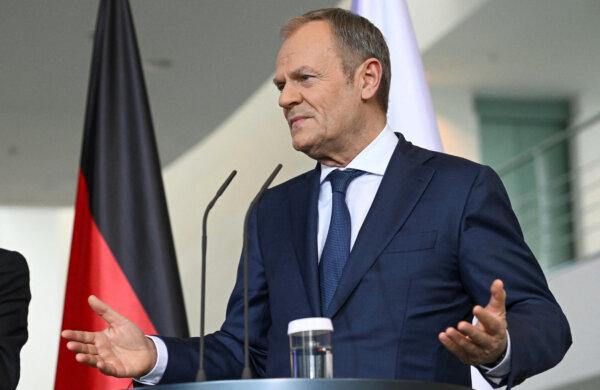Poland Disapproves of Germany’s Stricter Border Measures Within the EU
The Prime Minister of Poland stressed that the focus for addressing illegal immigration should be on the EU’s external frontiers, especially given the ongoing challenges at the Belarus border.
Poland’s Prime Minister Donald Tusk criticized Germany’s decision to strengthen its land border controls on Tuesday.
Tusk suggested that the issue be handled at the European level, urging urgent consultations with other affected countries and increased support for Warsaw’s immigration policies.
Despite warmer relations between Warsaw and Berlin, Germany’s reluctance to commit to joint financing for the EU’s defense and fortification of its eastern border has caused frustration in Poland.
Poland, located at the eastern frontier of the 27-nation bloc, has been grappling with a migration crisis since 2021, which it attributes to Belarus and Russia.
Germany recently intensified its stance on immigration following a surge in arrivals and incidents involving asylum seekers.
On Monday, Berlin announced plans to implement stricter controls at all land borders with other EU countries, which are typically part of the Schengen free-movement zone, for the next six months starting September 16.
Tusk emphasized the need for full support from Germany and the EU in terms of organizing, financing, and securing the eastern border to address illegal migration.
He clarified that Poland did not require stricter controls on its western border with Germany but rather more involvement from Berlin and other EU nations in safeguarding the external EU border.
“In the coming hours, we will engage with other affected countries to urgently discuss actions at the EU level,” Tusk stated.
Tusk attributed the decision to react to previous German immigration policies rather than failures on Poland’s part.
The Polish Prime Minister cancelled a planned trip to Potsdam, Germany, where he was to receive an award for “strengthening democracy.”
German Chancellor Olaf Scholz, set to deliver a speech honoring Tusk at the ceremony, also withdrew from the event due to scheduling conflicts.

Polish Prime Minister Donald Tusk gestures during a press statement with German Chancellor Olaf Scholz and French President Emmanuel Macron, ahead of their trilateral meeting of the consultation forum ‘Weimar Triangle’, at the Chancellery in Berlin, Germany March 15, 2024. Annegret Hilse/Reuters/ File photo
Germany has not yet responded to Tusk’s remarks or his decision to skip the awards ceremony.
Recent fatal knife attacks in Germany involving asylum seekers have raised concerns about immigration.
In Thuringia, the success of Alternative für Deutschland (AfD) in a state election earlier this month, after campaigning against migration, prompted Scholz’s Social Democratic Party-led coalition to address the issue more decisively.
Another potential strain in Berlin-Warsaw relations is the recent revelations regarding the bombing of the Nord Stream pipelines in 2022.
In June of this year, Germany issued a European arrest warrant for a Ukrainian citizen suspected of involvement in the bombing, but Polish authorities were unable to detain him due to lack of information.
Tusk’s response to these events was a call for all involved parties to apologize and refrain from further statements on the matter.
Reuters contributed to this report





